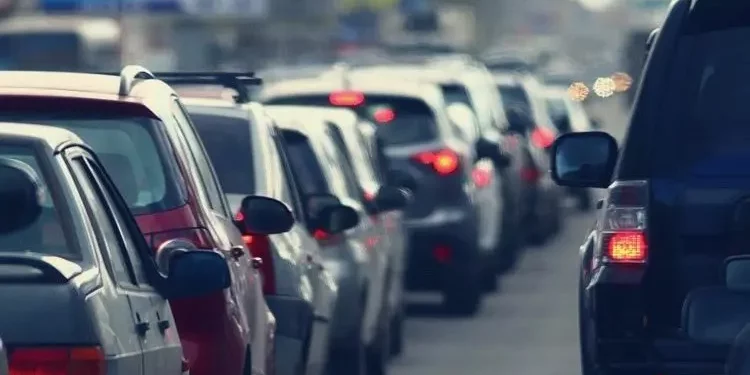As most Nigerians battle economic hardship, leading to low disposable income, the number of uninsured vehicles on Nigerian roads has risen to about 9million, LEADERSHIP can now reveal.
Data sourced from the Federal Roads Safety Corps (FRSC) and the Nigerian Insurers Association (NIA) revealed that there are 12 million vehicles plying roads across the country of which only 3.11million were insured as at the end of 2023, indicating only 25 per cent of vehicles are currently insured.
Also, expectations are that the figure of insured motorists may even drop further by the time the figure for the current year (2024) is revealed.
The population of insured vehicles dipped from 3.70 million in 2022 to 3.11million in 2023, showing that, about 600,000 vehicles failed to renew their insurances when their previous coverage expired, owing to tough operating business atmosphere and increasing cost of living that has made Nigerians relegate insurance in their scale of preference.
With increase in fuel pump price coupled with hike in price of vehicle spare parts, some motorists, it was learnt, have either sold their vehicles or park them at home, hence, see no reason to insure.
To this end, LEADERSHIP investigation shows that some of these 9million uninsured vehicles parade fake motor insurance papers, while some did not have any insurance coverage even as few who had genuine insurance papers before have failed to renew when their previous Motor insurance cover expired.
The FRSC Act demands that any automobile on Nigerian roads must have at least a third party motor insurance policy or comprehensive insurance coverage which goes for about 10 per cent of the value of a vehicle.
Third Party Vehicle Insurance comes at a fixed price of N15, 000 after it was increased from N5,000 last year to cater for inflation and increasing price for vehicle spare parts.
To this end, the insurance industry is losing billions of Naira on motor insurance to fake insurance racketeers who sell only papers to motorists.
Investigation revealed that most drivers go for fake insurance because it is cheap as well as to avoid the wrath of the law enforcement agents, as they have little or no knowledge of the benefits of buying original insurance cover. Other uninsured motorists, it was learnt, prefer to bribe their way out with law enforcement agents should they meet them on the roads.
While there are concerns that the number of uninsured vehicles may continue to rise if the economic situation does not improve in the immediate term, there are indications that some motorists will not renew when their existing policies expire owing to the tough economy.
Confirming this development during a recent press briefing in Lagos the chairman of NIA, Segun Omosehin said, aside from the hardship in the country, the over 300 per cent increase in third party motor insurance certificate from N5,000 to N15,000 premium was equally responsible for a drop in motor insurance last year(2023).
Although, he believes, with increased awareness on improved benefits in the premium hike, motorists will begin to appreciate the development, he said, similarly, the economic scenario last year too, was tough.
According to him, “the macroeconomic environment, is it inflation, is it fuel subsidy removal, the high price of petrol, or foreign exchange issues, all of these put together affected uptake of insurance.
“Insurance perception is critical to policy acceptance and renewal and Insurance is the easiest gift a poor man can give his family. This tough time is the best time to buy insurance with minimal premium and extremely huge values. The industry should do more financial education.”
Speaking on the apathy for insurance in the country, Omosehin stressed that tough times demand more insurance coverage, especially, because of hike in replacement values.
He said, it makes economic sense to pay a small premium and have the insured assets replaced when disaster occurs than having to dip into one’s savings to replace the damaged assets.
“How much is insurance? A lot of people spend N5,000 monthly on recharge cards to talk with friends, but cannot spend the same N5,000 to protect their beloved ones in case of the unexpected. If you ask me, the best time to take insurance is now because it protects the future of your children’s education, their health, and everything concerning planning their future,” he pointed out.
Calling for the right enabling environment for insurance to thrive, he urged underwriters to, in view of the current volatile operating environment, have a shorter period of review, which could be quarterly to ensure that reality is in line with projections.
“The industry needs to collaborate more with the government to ensure things are done. Security is essential and key to our business. Stability in political, FX, agric sectors are critical. Stability of the structure and system is critical. Insurers will weather the storm,” he pointed out.
Earlier, the director general of NIA, Yetunde Ilori, had equally attributed the drop in insurance subscription to several macroeconomic policies last year, such as currency redesign, subsidy removal, inflation, low disposable income, among others.
To her, ‘So, no doubt, inflation, high cost of living affected people’s purchasing power and decision to pay what they need, including insurance.’



